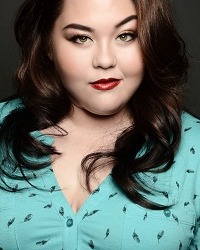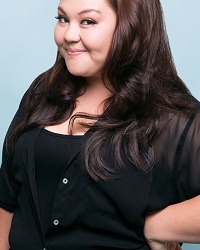#jolene purdy
Text

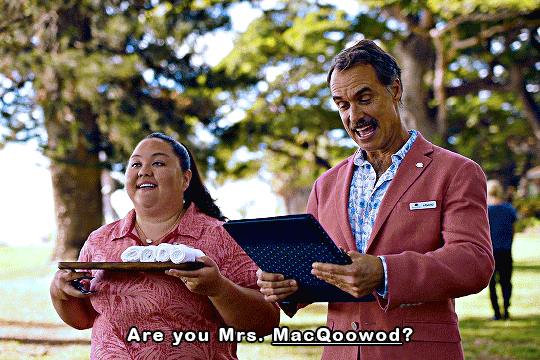
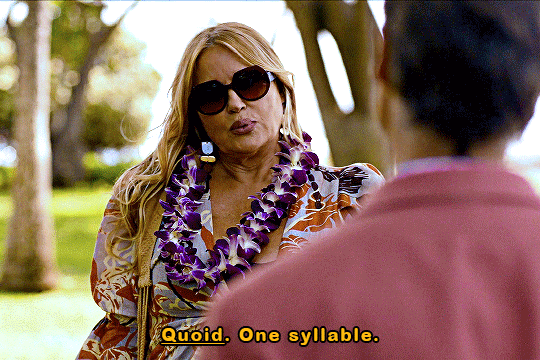


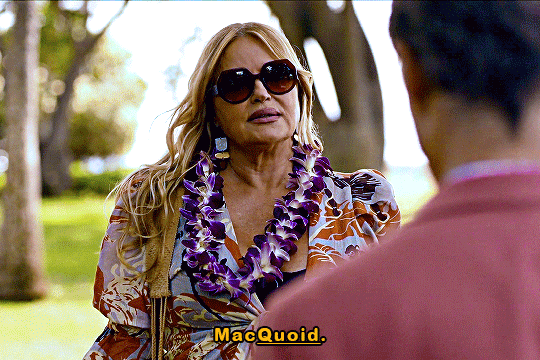


THE WHITE LOTUS (2021-)
1.01 (Arrivals)
bonus:

#the white lotus#hbo the white lotus#tanya mcquoid#twl armond#twl belinda#twl lani#natasha rothwell#jolene purdy#jennifer coolidge#murray bartlett#twledit#thewhitelotusedit#*arrivals (01x01)#dakotasvibe#userligaya#i miss them#the gaelic bit got me
40 notes
·
View notes
Photo
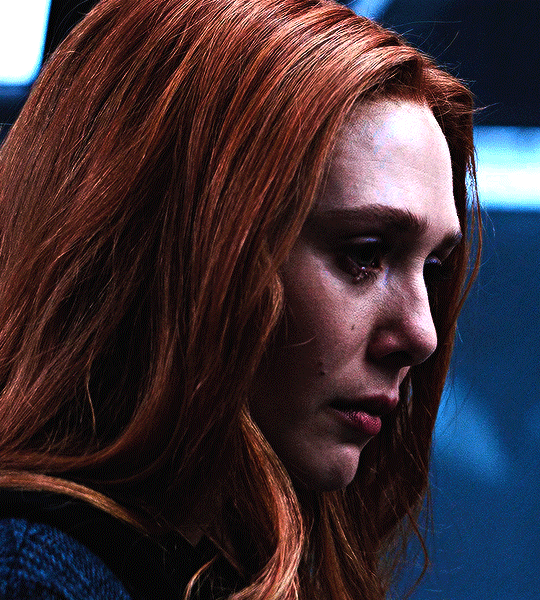
WANDAVISION 2021
But what is grief, if not love persevering?
#marvel#wandavision#2021#tv#elizabeth olsen#paul bettany#katheryn hahn#teyonah parris#evan peters#kat dennings#randall park#julian hilliard#emma caulfield#debra jo rupp#jett klyne#asif ali#jolene purdy#fred melamed#john collins
11 notes
·
View notes
Text

Jessica Pimentel, Danielle Brooks, Jolene Purdy, Laura Gomez y Abigail Savage en los premios "Screen Actors Guild" en Los Angeles, California (21/01/2018).
#jessica pimentel#danielle brooks#jolene purdy#laura gomez#abigail savage#orange is the new black#oitnb#oitnbcast#oitnb cast#oitnbforever#oitnbedit#public appearances#event#2018
5 notes
·
View notes
Photo
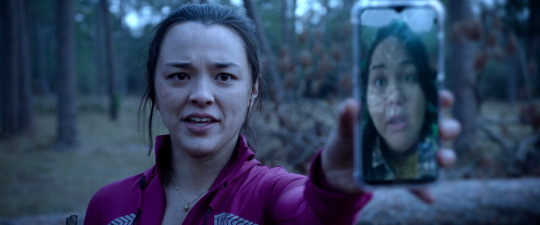
Unseen (2023)
2 notes
·
View notes
Video
youtube
UNSEEN | Trailer (2023), Poster & Images
Two women form an unlikely connection when a depressed gas station clerk SAM (Purdy), receives a call from EMILY (Francis), a nearly blind woman who is running from her murderous ex in the woods. Emily must survive the ordeal with Sam being her eyes from afar using video call.
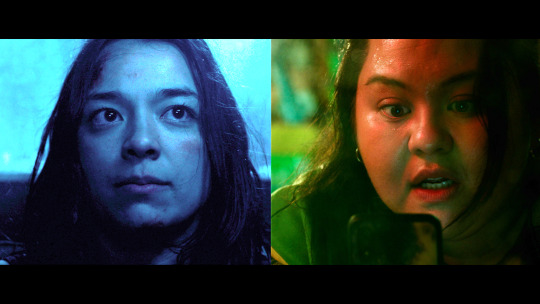
(L-R) Midori Francis as Emily and Jolene Purdy as Sam in the Horror/Thriller film, UNSEEN, a Paramount Home Entertainment and MGM+ release. Photo courtesy of Blumhouse Television.
UNSEEN stars an ensemble cast of Midori Francis (“Grey’s Anatomy”), Jolene Purdy ("Orange is the New Black"), Missi Pyle (Gone Girl) and Michael Patrick Lane ("Dynasty"). The film is directed by Yoko Okumura ("The Bold Type") and written by Salvatore Cardoni (Gnomes & Trolls: The Secret Chamber) and Brian Rawlins. The film was executive produced by Alexander Kruener, Jeremy Gold, Chris McCumber and Jason Blum.
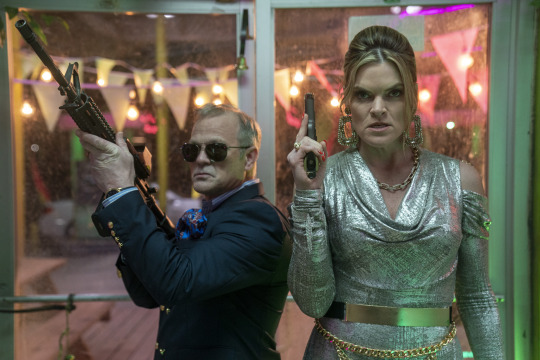
(L-R) Brett Baker as Carl and Missi Pyle as Carol in the Horror/Thriller film, UNSEEN, a Paramount Home Entertainment and MGM+ release. Photo courtesy of Skip Bolan and Blumhouse Television.
Building on Blumhouse Television’s success with the Welcome to the Blumhouse movies slate for Amazon and Into the Dark anthology series for Hulu, the deal is the first-of-its-kind for MGM+, which is adding films to its growing slate of premium original content.
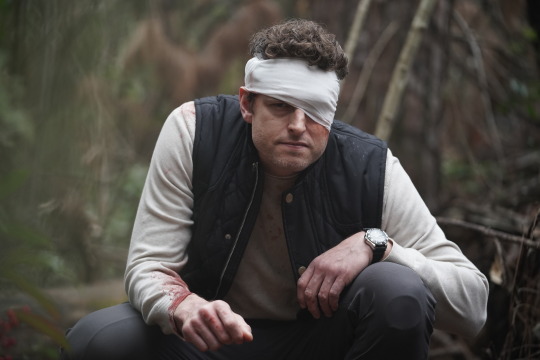
Michael Patrick Lane as Charlie in the Horror/Thriller film, UNSEEN, a Paramount Home Entertainment and MGM+ release. Photo courtesy of Skip Bolan and Blumhouse Television.
Paramount Home Entertainment will release the horror thriller film UNSEEN on Digital and On Demand on March 7, 2023 and on MGM+ on May 2023. The film is part of the Blumhouse Television and MGM+ deal to produce eight original films together. MGM’s streaming service, EPIX, rebranded as MGM+ on January 15, 2023.
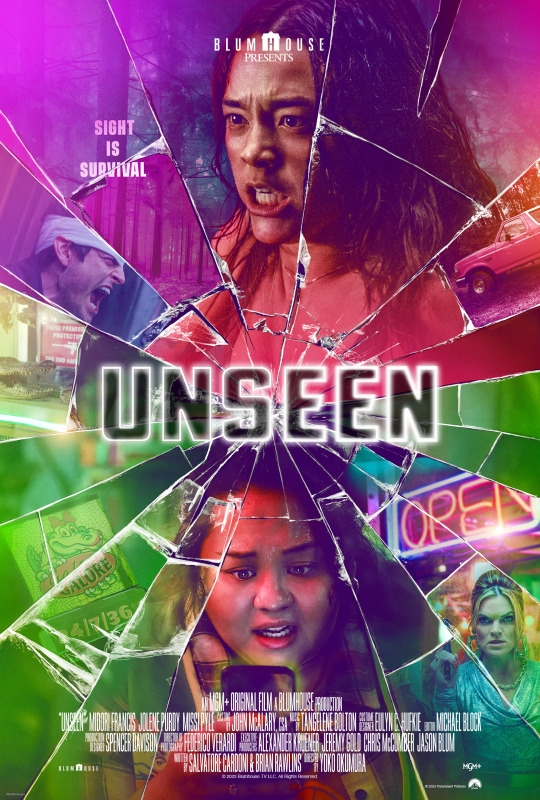
#youtube#film news#movie news#unseen#yoko okumura#salvatore cardoni#midori francis#jolene purdy#missi pyle#paramount home entertainment#mgm+#blumhouse television#trailer#poster#images#horror#thriller#dark comedy
3 notes
·
View notes
Text
The White Lotus (Season 1)

TV Shows/Dramas watched in 2023
The White Lotus (Season 1, 2021, USA)
Director & Writer: Mike White
Mini-review:
There's something so weirdly entertaining about watching all these rich white people being nasty and toxic. It's certainly an uncomfortable experience, but I honestly enjoyed every second of it. I love how biting the writing is and how it mocks rich people as often as it can. Hell, it even finds time to criticize the type of rich people that pretend to be all "woke" because it gives them a good reputation and/or credibility, even though we all know that, deep down, they don't really give a shit about any of it. And, of course, you can't talk about The White Lotus without mentioning the acting. What. A. Cast. They all nailed their roles to the smallest details, and even those I was unsure about before starting surprised me with knockout performances. Last but not least, I must give a shoutout to the score and the cinematographuy, cause they give the whole thing an extremely unsettling vibe that truly propels the show to the next level from a sensorial point of view (and they're gorgeous too). I've heard the second one is even better, so I'll be looking forward to that.
#the white lotus#mike white#murray bartlett#connie britton#jennifer coolidge#alexandra daddario#fred hechinger#jake lacy#brittany o'grady#natasha rothwell#sydney sweeney#steve zahn#molly shannon#lukas gage#kekoa scott kekumano#jon gries#alec merlino#jolene purdy#comedy#drama#black comedy#dark comedy#thriller#2023 tv shows and dramas#dramedy#satire#eat the rich
4 notes
·
View notes
Text
UNSEEN (2023):
Depressed young store clerk
Helps blind doctor stalked by ex
Guiding through FaceTime
youtube
#unseen#random richards#poem#haiku#poetry#haiku poem#poets on tumblr#haiku poetry#haiku form#poetic#horror#midori francis#jolene purdy#Michael Patrick lane#missi pyle#brett baker#Nicholas x. parsons#yoko Okumura#Salvatore cardoni#Brian rawlins#Youtube
0 notes
Text
Unseen is an absolutely brilliant horror suspense movie.
A misdial on a cellphone leads to a gripping thrill ride of danger. The number of elements blended together seamlessly make for a story that will keep you on the edge of your seat.
(Bonus: the leads are both Asian actresses: Midori Francis from The Sex Life of College Girls and Jolene Purdy from season one of The White Lotus)
0 notes
Text
Unseen: A Phone Thriller With Long Distance Eyes
Blumhouse
Summary via Wikipedia:
Gas station clerk Sam receives a call from Emily, a nearly blind woman who is running from her murderous ex in the woods. Emily must survive the ordeal with Sam being her eyes from afar using a video call.
Review:
Blumhouse
Unseen is a neat little thriller with the most interesting twist: the blind person escaping the killer most rely on the ”eyes” of a…

View On WordPress
#horror#Jolene Purdy#midori Francis#missi Pyle#movie#movies#phone thriller#Poem#thriller#unseen#yoko okomura
0 notes
Text
UNSEEN (2023) Blumhouse horror thriller - trailer and release news
‘Sight is survival’
Unseen is a 2023 American horror thriller film about a young woman named Sam who receives a call from Emily a nearly blind woman who is running from her murderous ex in the woods. She must survive the ordeal with Sam being her eyes using video call…
Directed by Yoko Okumura from a screenplay co-written by Salvatore Cardoni and Brian Rawlins. Produced by Adan Orozco, Paige…
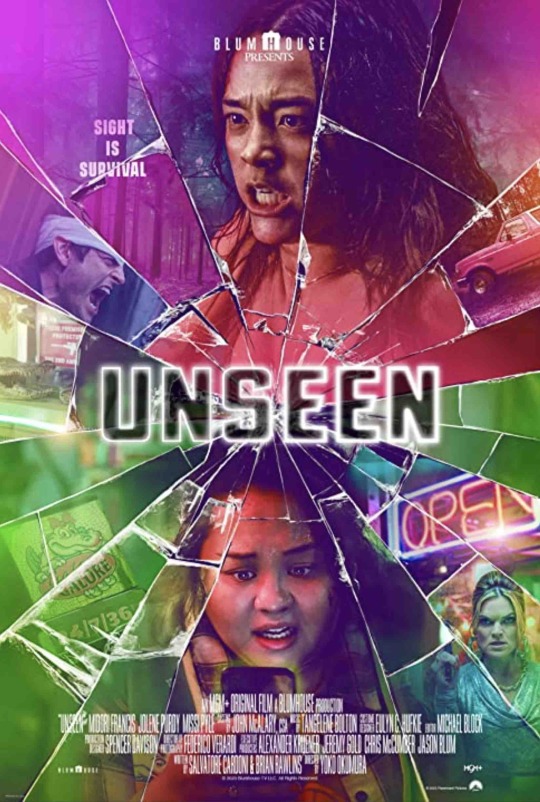
View On WordPress
#2023#Blumhouse#horror thriller#Jolene Purdy#Midori Francis#Missi Pyle#movie film#Ren Hanami#Unseen#Yoko Okumura
1 note
·
View note
Text
Poster And Trailer For UNSEEN Starring Midori Francis - On Digital and On Demand March 7, 2023 and On MGM+ May 2023
Check out these official new poster and trailer for UNSEEN
Starring: Midori Francis, Jolene Purdy, Missi Pyle, Michael Patrick Lane
Directed By: Yoko Okumura
Written By: Salvatore Cardoni & Brian Rawlins
Executive Producers: Alexander Kruener, Jeremy Gold, Chris McCumber, Jason Blum
Two women form an unlikely connection when a depressed gas station clerk SAM (Purdy), receives a call from EMILY…
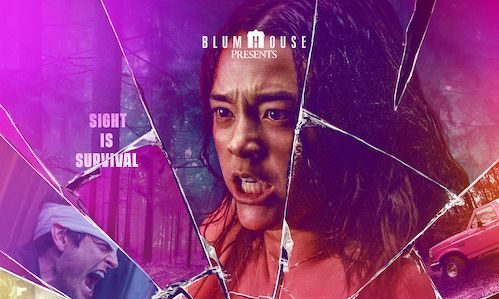
View On WordPress
0 notes
Photo
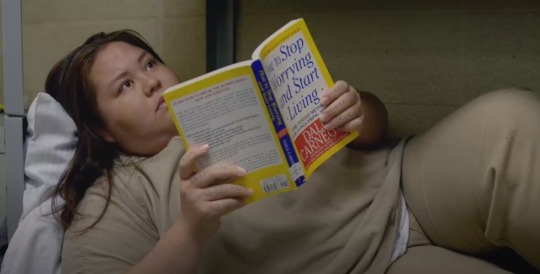
How to Stop Worrying and Start Living by Dale Carnegie
Orange Is the New Black: "Piece of Shit"
1 note
·
View note
Text
Who Plays Tully’s New Agent Justine Jordan? Why ‘Firefly Lane’s Jolene Purdy Looks So Familiar
Who Plays Tully’s New Agent Justine Jordan? Why ‘Firefly Lane’s Jolene Purdy Looks So Familiar
Warning: Spoilers for Firefly Lane Season 2 forward.
Netflix‘s heartwarming and heart-wrenching drama Firefly Lane is again with Part 1 of its second and remaining season. And along with reuniting with beloved returning forged members — together with Katherine Heigl, Sarah Chalke, Ali Skovbye, Roan Curtis, and Ben Lawson — followers will get to satisfy some recent faces this season, together with…
View On WordPress
0 notes
Text

Damon has been cast in an upcoming Blumhouse/Amazon Prime Horror Action series and as a series regular!!! I'm fucking screaming! His character is “the owner of a successful country music club" named Lucky. 😭 I'm so excited for this!
Full Article from BloodyDisgusting:
Four new cast members join Kevin Bacon and Jennifer Nettles on Blumhouse TV’s “The Bondsman,” an action horror series for Amazon’s Prime Video. That includes actor Damon Herriman (Run Rabbit Run, The Nightingale, “Mindhunter”).
Variety reports that Herriman, Beth Grant (No Country For Old Men, Donnie Darko), Maxwell Jenkins (“Arcadian,” “Lost In Space”) and Jolene Purdy (“The White Lotus,” “Orange Is The New Black”) have all joined the show in series regular roles.
The action horror series “centers on Hub Halloran (Kevin Bacon), a backwoods bounty hunter who comes back from the dead with an unexpected second chance at life, love, and a nearly-forgotten musical career — only to find that his old job now has a demonic new twist.”
“The Bondsman” was created by Grainger David (The Chair), who will also executive produce. Erik Oleson will serve as showrunner and executive producer via CrimeThink.
Jennifer Nettles will play Hub Halloran’s ex-wife, Maryanne. Beth Grant will play Kitty, the mother of Hub Halloran. Herriman will appear as Lucky, who is described as “the owner of a successful country music club, who is in a relationship with Maryanne.” Jenkins will play Cade, Hub and Maryanne’s son. Jolene Purdy will play Midge, who is described as “weary with the understated gravitas of someone who’s learned the hard way how to hold her ground in a male-dominated world. Midge may look unassuming but she’s actually a secret emissary.”
Amazon ordered eight half-hour episodes of “The Bondsman.”
Jason Blum, Chris McCumber, Jeremy Gold, and Chris Dickie for Blumhouse TV also executive produce, as does Paul Shapiro from CrimeThink. Bacon will also executive produce in addition to leading the series.
“The Bondsman” also marks the latest collaboration between Blumhouse and Amazon. Blumhouse is also behind Prime Video’s horror dramedy “The Horror of Dolores Roach,” which debuted last summer on the streaming platform.
#I NEED TO KNOW WHAT HE'S GONNA LOOK LIKE#SOUTHERN DADDY DAMON SAVE ME#damon herriman#lester sinclair#the bondsman
9 notes
·
View notes
Text
Squash's Book Roundup 2023
Last year I read 67 books. This year my goal was 70, but I very quickly passed that, so in total I read 92 books this year. Honestly I have no idea how I did it, it just sort of happened. My other goal was to read an equal amount of fiction and nonfiction this year (usually fiction dominates), and I was successful in that as well. Another goal which I didn’t have at the outset but which kind of organically happened after the first month or so of reading was that I wanted to read mostly strange/experimental/transgressive/unusual fiction. My nonfiction choices were just whatever looked interesting or cool, but I also organically developed a goal of reading a wider spread of subjects/genres of nonfiction. A lot of the books I read this year were books I’d never heard of, but stumbled across at work. Also, finally more than 1/3 of what I read was published in the 21st century.
I’ll do superlatives and commentary at the end, so here is what I read in 2023:
-The Commitments by Roddy Doyle
-A Simple Story: The Last Malambo by Leila Guerriero
-The Hero With A Thousand Faces by Joseph Campbell
-Uzumaki by Junji Ito
-Chroma by Derek Jarman
-The Emerald Mile: The epic story of the fastest ride in history through the Grand Canyon by Kevin Fedarko
-Venus by Suzan-Lori Parks
-The Hearing Trumpet by Leonora Carrington
-Sacred Sex: Erotic writings from the religions of the world by Robert Bates
-The Virginia State Colony For Epileptics And The Feebleminded by Molly McCully Brown
-A Spy In The House Of Love by Anais Nin
-The Sober Truth: Debunking the bad science behind 12-step programs and the rehab industry by Lance Dodes
-The Sailor Who Fell From Grace With The Sea by Yukio Mishima
-The Aliens by Annie Baker
-The Criminal Child And Other Essays by Jean Genet
-Aimee and Jaguar: A Love Story, Berlin 1943 by Erica Fischer
-The Master And Margarita by Mikhail Bulgakov
-The Mustache by Emmanuel Carriere
-Maldoror by Comte de Lautreamont
-Narrow Rooms by James Purdy
-At Your Own Risk by Derek Jarman
-Escape From Freedom by Erich Fromm
-Countdown: A Subterranean Magazine #3 by Underground Press Syndicate Collective
-Fabulosa! The story of Britain's secret gay language by Paul Baker
-The Golden Spruce: A true story of myth, madness and greed by John Vaillant
-Querelle de Roberval by Kevin Lambert
-Fire The Bastards! by Jack Green
-Closer by Dennis Cooper
-The Woman In The Dunes by Kobo Abe
-Opium: A Diary Of His Cure by Jean Cocteau
-Worker-Student Action Committees France May '68 by Fredy Perlman and R. Gregoire
-Capitalist Realism by Mark Fisher
-The Sound Of Waves by Yukio Mishima
-One Day In My Life by Bobby Sands
-Corydon by Andre Gide
-Noopiming by Leanne Betasamosake Simpson
-Man Alive: A true story of violence, forgiveness and becoming a man by Thomas Page McBee
-The Artist's Reality: Philosophies of Art by Mark Rothko
-Damage by Josephine Hart
-Schoolgirl by Osamu Dazai
-The Passion According to G.H. by Clarice Lispector
-The Sex Revolts: Gender, Rebellion and Rock n Roll by Simon Reynolds and Joy Press
-The Traffic Power Structure by planka.nu
-Bird Man: The many faces of Robert Straud by Jolene Babyak
-Seven Dada Manifestos by Tristan Tzara
-The Journalist by Harry Mathews
-Bullshit Jobs by David Graeber
-Moscow To The End Of The Line by Venedikt Erofeev
-Morvern Callar by Alan Warner
-The Poetics Of Space by Gaston Bachelard
-A Boy's Own Story by Edmund White
-The Coming Insurrection by The Invisible Committee
-Jesus' Son by Denis Johnson
-Notes From The Sick Room by Steve Finbow
-Artaud The Momo by Antonin Artaud
-Doctor Rat by William Kotzwinkle
-Recollections Of A Part-Time Lady by Minette
-trans girl suicide museum by Hannah Baer
-The 99% Invisible City by Roman Mars
-Sweet Days Of Discipline by Fleur Jaeggy
-Breath: The new science of a lost art by James Nestor
-What We See When We Read by Peter Mendelsund
-The Cardiff Tapes (1972) by Garth Evans
-The Ark Sakura by Kobo Abe
-Mad Like Artaud by Sylvere Lotringer
-The Story Of The Eye by Georges Bataille
-Little Blue Encyclopedia (For Vivian) by Hazel Jane Plante
-Blood And Guts In High School by Kathy Acker
-Summer Fun by Jeanne Thornton
-Splendid's by Jean Genet
-VAS: An Opera In Flatland by Steve Tomasula
-Sorry I'm Late, I Didn't Want To Come: One introvert's year of saying yes by Jessica Pan
-Whores For Gloria by William T. Vollmann
-The Notebooks by Jean-Michel Basquiat, Larry Walsh (editor)
-L'Astragale by Albertine Sarrazin
-The Decay Of Lying and other essays by Oscar Wilde
-The Immortal Life Of Henrietta Lacks by Rebecca Skloot
-Open Throat by Henry Hoke
-Prisoner Of Love by Jean Genet
-The Fifth Wound by Aurora Mattia
-The Communist Manifesto by Karl Marx
-My Friend Anna: The true story of a fake heiress by Rachel DeLoache Williams
-Mammother by Zachary Schomburg
-Building The Commune: Radical democracy in Venezuela by George Cicarello-Maher
-Blackouts by Justin Torres
-Cheapjack by Philip Allingham
-Near To The Wild Heart by Clarice Lispector
-The Trayvon Generation by Elizabeth Alexander
-Skye Papers by Jamika Ajalon
-Exercises In Style by Raymon Queneau
-Tender Buttons by Gertrude Stein
-The Feather Thief: Beauty, Obsession, and the Natural History Heist of the Century by Kirk Wallace Johnson
~Some number factoids~
I read 46 fiction and 46 nonfiction. One book, The Fifth Wound by Aurora Mattia, is fictionalized/embellished autobiography, so it could go half in each category if we wanted to do that, but I put it in the fiction category.
I tried to read as large a variety of nonfiction subjects/genres as I could. A lot of the nonfiction I read has overlapping subjects, so I’ve chosen to sort by the one that seems the most overarching. By subject, I read: 5 art history/criticism, 5 biographies, 1 black studies, 1 drug memoir, 2 essay collections, 2 history, 2 Latin American studies, 4 literary criticism, 1 music history, 2 mythology/religion, 1 nature, 4 political science, 2 psychology, 5 queer studies, 2 science, 1 sociology, 1 travel, 2 true crime, 3 urban planning.
I also read more queer books in general (fiction and nonfiction) than I have in years, coming in at 20 books.
The rest of my commentary and thoughts under a cut because it's fairly long
Here’s a photo of all the books I read that I own a physical copy of (minus Closer by Dennis Cooper which a friend is borrowing):
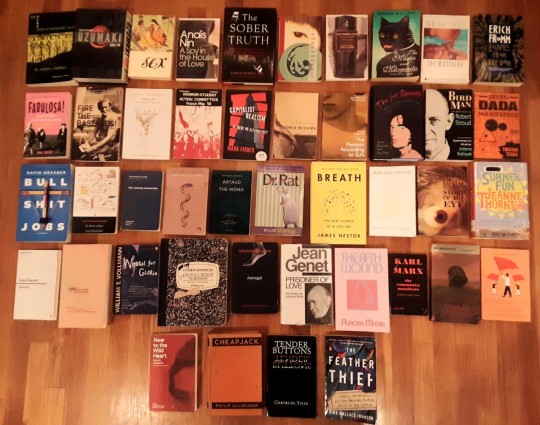
~Superlatives and Thoughts~
I read so many books this year I’m going to do a runner-up for each superlative category.
Favorite book: This is such a hard question this year. I think I gave out more five-star ratings on Goodreads this year than I ever have before. The books that got 5 stars from me this year were A Simple Story: The Last Malambo by Leila Guerriero, Capitalist Realism by Mark Fisher, The Emerald Mile by Kevin Fedarko, The Mustache by Emmanuel Carriere, The Passion According to GH by Clarice Lispector, trans girl suicide museum by Hannah Baer, The Fifth Wound by Aurora Mattia, Mammother by Zachary Schomburg, and Blackouts by Justin Torres.
But I think my favorite book of the year was The Fifth Wound by Aurora Mattia. It is an embellished, fictionalized biography of the author’s life, chronicling a breakup that occurred just before she began her transition, and then a variety of emotional events afterward and her renewal of a connection with that person after a number of years had passed. The writing style is beautiful, extremely decadent, and sits in a sort of venn diagram of poetry, theory, fantasy and biography. My coworker who recommended this book to me said no one she’d recommended it to had finished it because they found it so weird. I read the first 14 pages very slowly because I didn’t exactly know what the book was doing, but I quickly fell completely in love with the imagery and the formatting style and the literary and religious references that have been worked into the book both as touchstones for biography and as vehicles for fantasy. There is a video I remember first seeing years ago, in which a beautiful pinkish corn snake slithers along a hoop that is part of a hanging mobile made of driftwood and macrame and white beads and prism crystals. This was the image that was in the back of my head the entire time I was reading The Fifth Wound, because it matched the decadence and the strangeness and the crystalline beauty of the language and visuals in the book. It is a pretty intense book, absolutely packed with images and emotion and ideas and preserved vignettes where reality and fantasy and theory overlap. It’s one of those books that’s hard to describe because it’s so full. It’s dense not in that the words or ideas are hard to understand, but in that it’s overflowing with imagery and feelings, and it feels like an overflowing treasure chest.
Runner-up:The Mustache by Emmanuel Carriere. However, this book wins for a different superlative, so I’ve written more about it there.
Least favorite book: Querelle de Roberval by Kevin Lambert. I wrote a whole long review of it. In summary, Lambert’s book takes its name from Querelle de Brest, a novel by Jean Genet, and is apparently meant to be an homage to Genet’s work. Unfortunately, Lambert seems to misunderstand or ignore all the important aspects of Genet’s work that make it so compelling, and instead twists certain motifs Genet uses as symbols of love or transcendence into meaningless or negative connotations. He also attempts to use Genet’s mechanic of inserting the author into the narrative and allowing the author to have questionable or conflicting morals in order to emphasize certain aspects of the characters or narrative, except he does so too late in the game and ends up just completely undermining everything he writes. This book made me feel insulted on behalf of Jean Genet and all the philosophical thought he put into his work.
Runner-up: What We See When We Read by Peter Mendelsund. This graphic designer claims that when people read they don’t actually imagine what characters look like and can’t conjure up an image in their head when asked something like “What does Jane Eyre look like to you?” Unfortunately, there’s nothing scientific in the book to back this up and it’s mostly “I” statements, so it’s more like “What Peter Mendelsund Sees (Or Doesn’t See) When He Reads”. It’s written in what seems to be an attempt to mimic Marshall McLuhan’s style in The Medium Is The Massage, but it isn’t done very well. I spent most of my time reading this book thinking This does not reflect my experience when I read novels so I think really it’s just a bad book written by someone who maybe has some level of aphantasia or maybe is a visual but not literary person, and who assumes everyone else experiences the same thing when they read.
(Another runner-up would be The Hero With A Thousand Faces by Joseph Campbell, but I think that’s a given because it’s an awful piece of revisionist, racist trash, so I won’t write a whole thing about it. I can if someone wants me to.)
Most surprising/unexpected book: The Mustache by Emmanuel Carriere. This book absolutely wins for most surprising. However, I don’t want to say too much about it because the biggest surprise is the end. It was the most shocking, most unexpected and bizarre endings to a novel I’ve read in a long time, and I absolutely loved it. It was weird from the start and it just kept getting weirder. The unnamed narrator decides, as a joke, to shave off the moustache he’s had for his entire adult life. When his wife doesn’t react, he assumes that she’s escalating their already-established tradition of little pranks between each other. But then their mutual friends say nothing about the change, and neither do his coworkers, and he starts spiral into confusion and paranoia. I don’t want to spoil anything else because this book absolutely blew me away with its weirdness and its existential dread and anyone who likes weird books should read it.
Runner-up: Morvern Callar by Alan Warner. I don’t even know what compelled me to open this book at work, but I’m glad I did. The book opens on Christmas, where the main character, Morvern, discovers her boyfriend dead by suicide on the kitchen floor of their flat. Instead of calling the police or her family, she takes a shower, gets her things and leaves for work. Her narrative style is strange, simultaneously very detached and extremely emotional, but emotional in an abstract way, in which descriptions and words come out stilted or strangely constructed. The book becomes a narrative of Morvern’s attempts to find solitude and happiness, from the wilderness of Scotland to late night raves and beaches in an unnamed Mediterranean city. The entire book is scaffolded by a built-in playlist. Morvern’s narrative is punctuated throughout by accounts of exactly what she’s listening to on her Walkman. The narrative style and the playlist and the bizarre behavior of the main character were not at all what I was expecting when I opened the book, but I read the entire book in about 3 hours and I was captivated the whole time. If you like the Trainspotting series of books, I would recommend this one for sure.
Most fun book: The Emerald Mile by Kevin Fedarko. This book was amazing. It was like reading an adventure novel and a thriller and a book on conservationism all wrapped into one and it was clearly very passionately written and it was a blast. I picked it up because I was pricing it at work and I read the captions on one of the photo inserts, which intrigued me, so I read the first page, and then I couldn’t stop. The two main narratives in the book are the history of the Grand Canyon (more specifically the damming of the Colorado River) and the story of a Grand Canyon river guide called Kenton Grua, who decided with two of his river guide friends to break the world record for fastest boat ride down the Colorado River through the Grand Canyon. The book is thoroughly researched, and reaches back to the first written record of the canyon, then charts the history of the canyon and the river up to 1983 when Grua made his attempt to race down the river, and then the aftermath and what has happened to everyone in the years since. All of the historical figures as well as the “current” figures of 1983 come to life, and are passionately portrayed. It’s a genuine adventure of a book, and I highly recommend it.
Runner-up: Summer Fun by Jeanne Thornton. It asks “What if Brian Wilson of the Beach Boys was actually a trans woman?” Actually, that’s not quite it. It asks “What if a trans woman living in poverty in southwest America believed to an almost spiritual level that Brian Wilson was a trans woman?” The main character and narrator, Gala, is convinced that the lead singer of her favorite band, the Get Happies, (a fictional but fairly obvious parallel to the Beach Boys) is a trans woman. Half the book is her writing out her version of the singer’s life history, and the other half is her life working at a hostel in Truth Or Consequences, New Mexico, where she meets a woman who forces her out of her comfort zone and encourages her to face certain aspects of her self and identity and her connection with others. It’s a weird novel, and definitely not for everyone, but it’s fun. I was reading it on the train home and I was so into it that I missed my stop and had to get off at the next station and wait 20 minutes for the train going back the other way.
Book that taught me the most: Breath: The new science of a lost art by James Nestor. In it, Nestor explores why humans as a general population are so bad at breathing properly. He interviews scientists and alternative/traditional health experts, archaeologists, historians and religious scholars. He uses himself as a guinea pig to experiment with different breathing techniques from ancient meditation styles to essentially overdosing on oxygen in a lab-controlled environment to literally plugging his nose shut to only mouth-breathe for two weeks (and then vice-versa with nose breathing). It was interesting to see a bunch of different theories a laid out together regarding what kind of breathing is best, as well as various theories on the history of human physiology and why breathing is hard. Some of it is scientific, some pseudoscience, some just ancient meditation techniques, but he takes a crack at them all. What was kind of cool is that he tries every theory and experiment with equal enthusiasm and doesn’t really seem to favor any one method. Since he’s experimenting on himself, a lot of it is about the effects the experiments had on him specifically and his experiences with different types of breathing. His major emphasis/takeaway is that focusing on breathing and learning to change the ways in which we breathe will be beneficial in the long run (and that we should all breath through our noses more). While I don’t think changing how you breathe is a cure-all (some of the pseudoscience he looks at in this book claims so) I certainly agree that learning how to breath better is a positive goal.
Runner-up: The Sober Truth by Lance Dodes. I say runner-up because a lot of the content of the book is things that I had sort of vague assumptions about based on my knowledge of addiction and AA and mental illness in general. But Dodes put into words and illustrated with numbers and anecdotes and case studies what I just kind of had a vague feeling about. It was cool to see AA so thoroughly debunked by an actual psychiatrist and in such a methodical way, since my skepticism about it has mostly been based on the experiences of people I know in real life, anecdotes I’ve read online, or musicians/writers/etc I’m a fan of that went through it and were negatively affected.
Most interesting/thought provoking book: Mammother by Zachary Schomburg. The biggest reason this book was so interesting is because the little world in which it exists is so strange and yet so utterly complete. In a town called Pie Time (where birds don’t exist and the main form of work is at the beer-and-cigarettes factory) a young boy called Mano who has been living his childhood as a girl decides that he is now a man and that it’s time for him to grow up. As this happens, the town is struck by an affliction called God’s Finger. People die seemingly out of nowhere, from a hole in their chest, and some object comes out of the hole. Mano collects the things that come out of these holes, and literally holds them in order to love them, but the more he collects, the bigger he becomes as he adds objects to his body. A capitalist business called XO shows up, trying to convince the people of Pie Time that they can protect themselves from God’s Finger with a number of enterprises, and starts to slowly take over the town. But Mano doesn’t believe death is something that should be run from. This book is so pretty, and the symbolism/metaphors, even when obvious, feel as though they belong organically in the world. A quote on the back of the book says it is “as nearly complete a world as can be”, and I think that’s a very accurate description. The story is interesting, the characters are compelling, and the magical realist world in which the story exists is fascinating.
Runner up: trans girl suicide museum by Hannah Baer. This is a series of essays taken (for the most part) from Baer’s blog posts. They span a chunk of time in which she writes her thoughts and musings on her experience transition and transgender existence in general. It is mostly a series of pieces reflecting on “early” stages of transition. But I thought it was really cool to see an intellectual and somewhat philosophical take on transition, written by someone who has only been publicly out for a few years, and therefore is looking at certain experiences with a fresh gaze. As the title suggests, a lot of the book is a bit sad, but it’s not all doom and gloom. A lot of the emphasis is on the important of community when it comes to the experience of starting to transition and the first few years, and the importance of community on the trans experience in general. I really liked reading Hannah Baer’s thoughts as a queer intellectual who was writing about this stuff as she experienced it (or not too long after) rather than writing about the experience of early transition years and years down the line. It meant the writing was very sharp and the emotion was clear and not clouded by nostalgia.
Other thoughts/commentary on books I don’t have superlatives for:
I’m glad my first (full) book read in 2023 was A Simple Story: The Last Malambo by Leila Guierrero. It’s a small, compact gem of a book that follows the winner of an Argentinian dance competition. The Malambo is a traditional dance, and the competition is very fierce, and once someone wins, they can never compete again. The author follows the runner-up of the previous year, who has come to compete again. It paints a vivid picture of the history of the dance, the culture of the competition, and the character of the dancer the author has chosen to follow. It’s very narrowly focused, which makes it really compelling.
The Hearing Trumpet by Leonora Carrington could have easily won for most fun or most interesting book. Carrington was a surrealist writer and painter (and was in a relationship with Max Ernst until she was institutionalized and he was deported by the Nazis). In The Hearing Trumpet, an elderly woman called Marian is forced by her family to go live in an old ladies’ home. The first strange thing about the place is that all of the little cabins each woman lives in is shaped like some odd object, like an iron, or ice cream, or a rabbit. The other old women at the institution are a mixed bag, and the warden of the place is hostile. Marian starts to suspect that there are secrets, and even witchcraft involved, and she and a few of the other ladies start to try and unravel the occult mysteries hidden in the grounds of the home. The whole book is fun and strange, and the ending is an extremely entertaining display of feminist occult surrealism.
Sacred Sex: Erotica writings from the religions of the world by Robert Bates was a book I had to read for research for my debunking of Withdrawn Traces. It was really very interesting, but it was also hilarious to read because maybe 5% of any of the texts included were actually erotic. It should have been called “romantic writings from the religions of the world” because so little of the writing had anything to do with sex, even in a more metaphorical sense.
Every time I read Yukio Mishima I’m reminded how much I love his style. The Sailor Who Fell From Grace With The Sea almost usurped The Temple of the Golden Pavilion as my favorite Mishima novel. I’m fascinated with the way that Mishima uses his characters to explore the circumstance of having very intense feelings or reactions towards something and simultaneously wanting to experience that, while also wanting to have complete control and not feel them at all. There’s a scene in this novel where Noboru and his friends brutally kill and dissect a cat; it’s an intense and vividly rendered scene, made all the more intense by Noboru desperately conflicted between feeling affected by the killing and wanting to force himself to feel nothing. The amazing subtle theme running through the book is the difference between Noboru’s intense emotions and his desire/struggle to control them and subdue them versus Ryuji’s more subtle emotion that grows through the book despite his natural reserve. I love endings like the one in this book, where it “cuts to black” and you don’t actually see the final act, it’s simply implied.
In 2016 or 2017, I ran lights for a showcase for the drama department at UPS (I can’t remember now what it was) that included a bunch of scenes from various plays. I remember a segment from Hir by Taylor Mac, and a scene from The Aliens by Annie Baker. In the scene that I saw, one of the characters describes how when he was a boy, he couldn’t stop saying the word ladder, and the monologue culminates in a full paragraph that is just the word “ladder.” I can’t remember who was acting in the one that I saw at UPS, but that monologue blew me away, the way that one word repeated 127 conveyed so much. This year a collection of Annie Baker’s plays came in at work so I sat down and read the whole play and it was just incredible. I’d love to see the full play live, it’s absolutely captivating.
Narrow Rooms by James Purdy was a total diamond in the rough. It takes place in Appalachia, in perhaps the 1950s although it’s somewhat hard to tell. It follows the strange gay entanglement between four adult men in their 20s, who have known each other all their lives. It traces threads of bizarre codependency, and the lines crossed between love and hate. The main character, Sidney, has just returned home after serving a sentence for manslaughter. On his return, he finds that an old lover has been rendered disabled in an accident, and that an old school rival/object of obsession has been waiting for him. This rival, nicknamed “The Renderer” because of an old family occupation, has been watching Sidney all their lives. Both of them hate the other, but know that they’re destined to meet in some way. Caught in the middle of their strange relationship are Gareth, Sidney’s now-disabled former lover, and Brian, a young man who thinks he’s in love with The Renderer. The writing style took me some time to get used to, as it is written as though by someone who has taught themselves, or has only had basic classes on fiction writing. But the plot itself is so strange and the characters are so stilted in their own internality that it actually fits really well. Like The Mustache, this book had one of the strangest, most intensely visceral and shocking endings I’ve read in a while. It was also “one that got away.” I read it at work, then put it on my staff picks shelf, and only realized after someone else bought it that I should have kept it for myself.
The Passion According to G.H. by Clarice Lispector blew my mind. I really don’t want to spoil any of it, but I highly encourage anyone who hasn’t read it to do. The build in tension is perfect and last 30 pages are just incredible. Lispector’s style is so unique and so beautiful and tosses out huge existential questions like it’s nothing, and I love her work so much.
Moscow To The End Of The Line by Venedikt Erofeev was another really unexpected book. It’s extremely Russian (obviously) and really fun until suddenly it isn’t. The main character, a drunkard, gets on a train from Moscow to Petushki, the town at the end of the line (hence the title), in order to see his lover. On the way, he befriends the other people in his train car and they all steadily get drunker and drunker, until he falls asleep and misses his stop. Very Russian, somewhat strange, and I was surprised that it was written in the late 60s and not the 30s.
Dr. Rat by William Kotzwinkle was what I expected. Weird in a goofy way, a bit silly even when it’s serious, and rather heavy-handed satire. The titular Dr Rat is a rat who has spent his whole life in a laboratory and has gone insane. The other animals who are being tested on want to escape, but he’s convinced that all the testing is for the good of science and wants to thwart their rebellion. Unfortunately, all the other animals who are victims of human cruelty/callousness/invasion/deforestation/etc around the world are also planning to rebel, connection with each other through a sort of psychic television network. It’s a very heavy-handed environmentalist/anti-animal cruelty metaphor and general societal satire, but it’s silly and fun too.
Confessions Of A Part-Time Lady by Minette is a self-published, nearly impossible to find book that came into my work. It’s self-printed and bound, and was published in the 70s. It is the autobiographical narrative of a trans woman who did drag and burlesque and theatre work all across the midwest, as well as New York and San Francisco, from the 1930s up to the late 60s. It was originally a series of interviews by the two editors, who published it in narrative form, and it includes photos from Minette’s personal collection. It’s an amazing story, and a glimpse into a really unique time period of gender performance and queer life. She even mentions Sylvia Rivera, specifically when talking about gay activism. She talks about how the original group of the Gay Liberation Front was an eclectic mix of all sorts of people of all sexualities and genders and expressions. Then when the Gay Activists Alliance “took over”, they started pushing out people who were queer in a more transgressive or unusual way and there was more encouragement on being more heteronormative. She mentions Sylvia Rivera and Marsha P Johnson, saying “I remember Sylvia Rivera who founded STAR – Street Transvestite Action Revolutionaries. She was always trying to say things – the same kinds of things Marsha P Johnson says in a sweeter way – and they treated her like garbage. If that’s what ‘order’ is, haven’t we had enough?”
Whores For Gloria by William T Vollmann was exactly as amazing as I thought it would be. I love Vollmann’s style, because you can tell that even though the characters he’s writing about are characters, they’re absolutely based on people that he met or saw or spoke to in real life. The main character, Jimmy, is searching for his former lover, Gloria, who has either died or left him (it is unclear for most of the novel). He begins to use tokens bought from sex workers (hair, clothes, etc) to attempt to conjure her into reality, and when that doesn’t work, he pays them to tell him stories from their lives, and through their lives he tries to conjure Gloria. This novel’s ending had extremely similar vibes to the ending of Moscow To The End Of The Line.
Prisoner Of Love by Jean Genet was a lot to take in. It was weird reading it at this moment in time, and completely unplanned. It’s just that I have only a few more books to read before I’ve made my way through all Genet’s works that have been translated into English, and it was next on the list. Most of the book focuses on Genet’s time spent in Palestine in the 70s and his short return in the 80s. He also discusses the time he spent with the Black Panthers in the US, although it’s not the main subject of the book. Viewing Palestine from the point of view of Genet’s weird philosophical and moral worldview was really interesting, because what he chooses to spend time looking at or talking about is probably not what most would focus on, and because even his most political discussions are tinged with the uniquely Genet-style spirituality (if you can call it that? I don’t know what to call it) that is so much the exact opposite of objective. It’s definitely not a book about Palestine I would recommend reading without also having a grasp of Genet’s style of looking at the world and his various obsessions and preoccupations, because they really do inform a lot of his commentary. It was also written 15 years after his first trip to Palestine, partly from memory and partly from journal entries/notes, which gives it a sort of weirdly dreamlike quality much like his novels.
Blackouts by Justin Torres was so amazing! It blends real life and fiction together so well that I didn’t even realize that most of the people he references in the novel are real historical figures until he mentioned Ben Reitman, who I recognized as the Chicago King Of The Hobos and Emma Goldman’s lover. The book follows an unnamed narrator who has come to a hotel or apartment in the southwest in order to care for a dying elderly man called Juan Gay. Juan has a book called Sex Variants, a study of homosexuality from the 1940s which has been censored and blacked out. Back and forth, the narrator and Juan trade stories. The narrator tells his life story up until the present, including his first meeting with Juan in a mental hospital as a teenager. In turn, Juan tells the story of the Sex Variants book and its creator, Jan Gay (Ben Reitman’s real life daughter). The book explores the reliability of narrative, the power of collecting and documenting life stories, and of removing or changing things in order to create new or different narratives.
Again, Clarice Lispector rocking my world! Generally I can read a 200-ish page novel in somewhere between 2 and 4 hours depending on the content/writing style. Near To The Wild Heart took me 9 hours to read because I kept wanting to stop and reread entire paragraphs because they were so interesting or pretty or philosophical. The story focuses on Joana, whose strange way of looking at the world and going through life makes everyone sort of wary of her. This book is so layered I don’t really know how to describe it. So much of it is philosophical or existential musings through the vehicle of Joana. Unsurprisingly, it’s a beautiful book and I highly recommend it.
I’m just going to copy/paste my Goodreads review for Skye Papers by Jamika Ajalon: This book had so much potential that just…fell short. I could tell that it was written for an American audience but the way the reader/Skye is “taught” certain British terms and/or slang felt a bit patronizing. The characters were fleshed out and interesting and I liked them a lot but the plot crumbled quickly in the last half of the book Things sped up to a degree that felt strange and unnatural, the book’s pacing was inconsistent throughout. Perhaps that was deliberate considering the reveal at the climax, but if it was, it should have been utilized better. If the inconsistent pacing wasn’t deliberate, then it just made the book feel strange to read. There were moments were I felt like there should have been more fleshing out of certain character relationships. Even with the reveal at the end and the explanation of Pieces’ erratic/avoidant behavior, I wish there had been more fleshing out of the relationship or friendship between her and Skye at the beginning, when Skye first arrives in London. Characters who seemed cool/interesting got glossed over and instead there was a lot more dwelling on Skye walking around or busking or just hanging out. I could have gone without the last 30 or so pages after the big reveal, where Skye went back through everything that happened with the knowledge she (and the reader) had gained. It dragged on and on and at that point I felt like the whole story was so contrived that I just wasn’t interested anymore. A friend who read this book before I did said she thought it was an experimental novel that just hadn’t gone far enough, and I completely agree with her. I think if the style with the film script interludes went further, into printed visuals or more weirdness with the interludes, more experimental style with the main story, or something, it would have been really good. It just didn’t push hard enough.
The Feather Thief by Kirk Wallace Johnson was a fun little true crime novel about a young flautist who broke into a small English natural history museum in 2009 and stole hundreds of thousands of pounds worth of preserved rare bird skins dating back to the 19th century. He was a salmon fly-tying enthusiast and prodigy, and old Victorian fly designs used feathers of rare birds. The book first goes through the heist and the judicial proceedings, then examines the niche culture of Victorian fly-tying enthusiasts and obsessives, and then chronicles the author’s attempts to track down some of the missing birds. It was a quick, easy read, but fun and an unusual subject and I quite enjoyed it.
In 2024 I don’t plan on trying to surpass or even reach this year’s number. I’m going to start off the year reading The Recognitions by William Gaddis, then I’m going to re-read a number of books that I come across at work or in conversation and think Huh, I should reread that one of these days. So far, the books I am currently planning to reread: Sometimes A Great Notion by Ken Kesey, As I Lay Dying by William Faulkner, The People Of Paper by Salvador Plascencia, Mrs Dalloway by Virginia Woolf, The Mustache by Emmanuel Carriere, McGlue by Otessa Moshfegh, Long Day’s Journey Into Night by Eugene O’Neil, Acid Snow by Larry Mitchell, and Nightwood by Djuna Barnes.
#reading list#book list#book roundup#reading list year in review#books#squash rambles#reading year in review#book list roundup
6 notes
·
View notes

